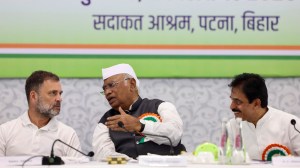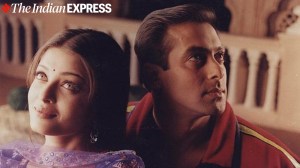Merger of services not an option, says Railways
Prabhu had agreed to this idea and had asked for a team of senior officers to prepare the modalities.
Plagued by “departmentalism” in its internal governance for ages, railway ministry — divided into eight structured cadres of officers — now has a unique, experimental solution at hand. It calls for sending out officers of one cadre to work for another cadre for a fixed period in order to qualify for top posts.
Retired Comptroller and Auditor General Vinod Rai, as a one-man committee formed by railway minister Suresh Prabhu to suggest ways to end the departmental wars, had suggested that a single Senior Management Cadre be prepared for all general top posts. This, the committee had argued, was to be the solution eventually. Prabhu had agreed to this idea and had asked for a team of senior officers to prepare the modalities.
Watch What Else Is making News
However, the note prepared by the bureaucracy for the consideration of the Railway Board on this subject argues that merging all services into one would be detrimental to Railways as it has time-tested systems based on speciality of cadres that have helped in smooth running of train operations for ages.
Not accepting the idea of a single unified cadre, it says each department is unique and must maintain its speciality.
Indian Railways is governed by five cadres directly engaged in train operations: Traffic (operations and earnings), Civil Engineering (track, stations and such assets), Mechanical (Rolling Stock), Electrical, and Signalling. Three cadres are in back-end support roles: Accounts (Finance), Personnel (Human Resources) and Stores (Procurement).
The note being put up before the Railway Board says that these must remain as they are. “It is felt that continuous need of these specialities are recognised and maintained as these will always remain a sine-qua-non of Railways,” the note says.
Rai’s assessment was that inter-departmental spar happens as officers don’t have exposure to the working of other departments. As an experimental solution that could be tried for six years is a scheme wherein each department offer 10-15 per cent of mid-level to senior (up to Joint-Secretary-level) posts to officers from other departments.
It identifies four top positions, which officers from all departments vie for. They are Zonal General Manager, Additional General Manager, Divisional Railway Manager (the topmost officer leading a rail division, reporting to GM) and Additional Divisional Railway Manager.
The proposal is that officers would be selected for these posts only from among those who have at least three years of experience with any department other than their own.
For instance, a Civil Engineering officer due to become DRM in 3-4 years, will get more weightage if he/she has worked for Traffic department as well for 3 years thereby showing a required versatility in exposure. Those in the 3 supporting cadres, too, need to work in any one of the Operations cadres for 3 years.
The proposal says that policy tweaks can be made keeping 2020 in mind and by 2026 this scheme can be reviewed to ascertain if Railways has gained anything from this exercise.
“It will generate a positive virtuous spiral in Railways wherein officers aspiring to reach higher positions will not only request their departmental heads to send them to other department but will also request heads of other departments to accept them,” it says.
Expert committees, like the Rakesh Mohan Committee, the Sam Pitroda Committee and of late the Bibek Debroy Committee have indicated that departmentalism is a serious problem that needs to be tackled with policy interventions.
Photos


- 01
- 02
- 03
- 04
- 05





























